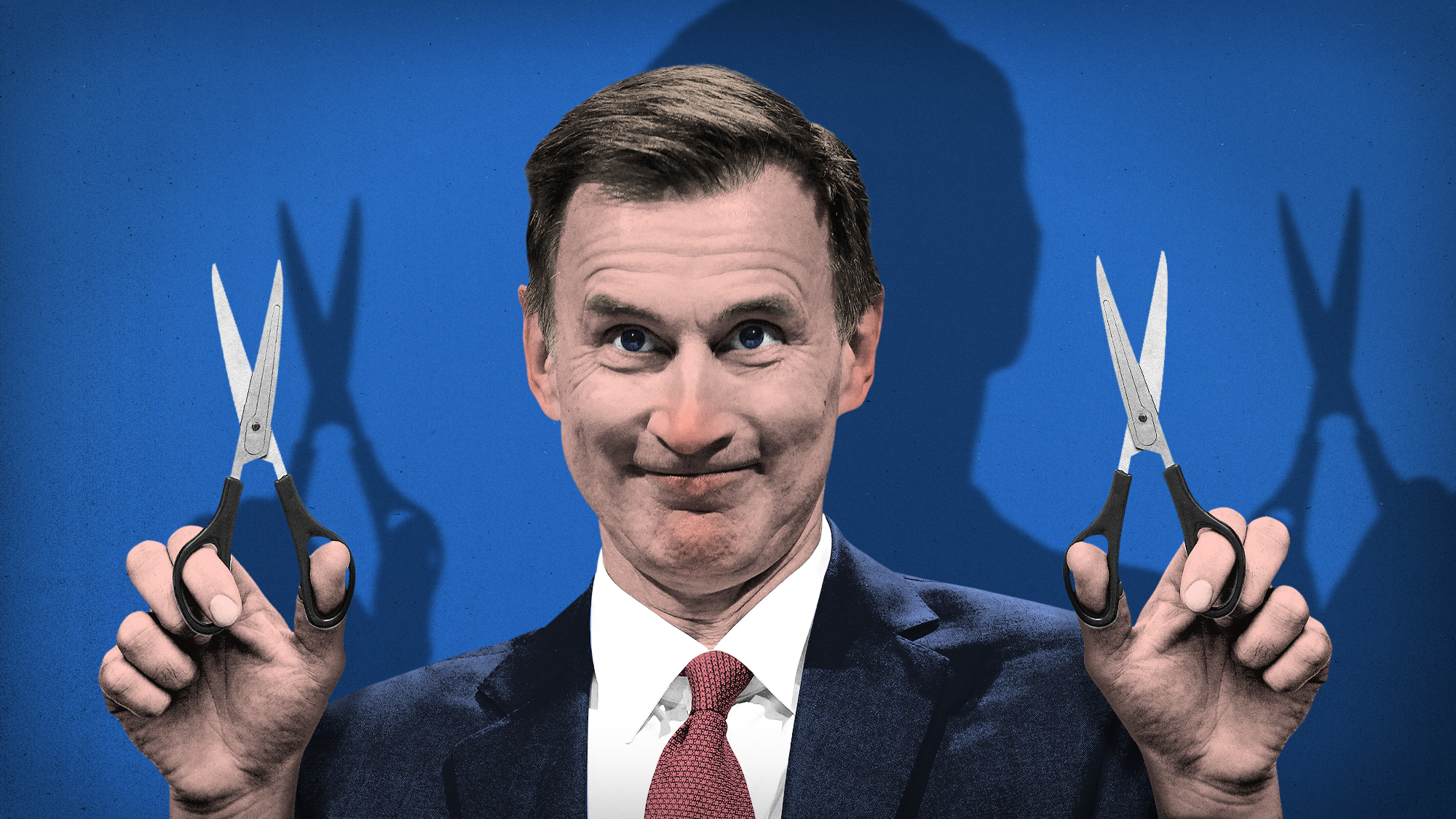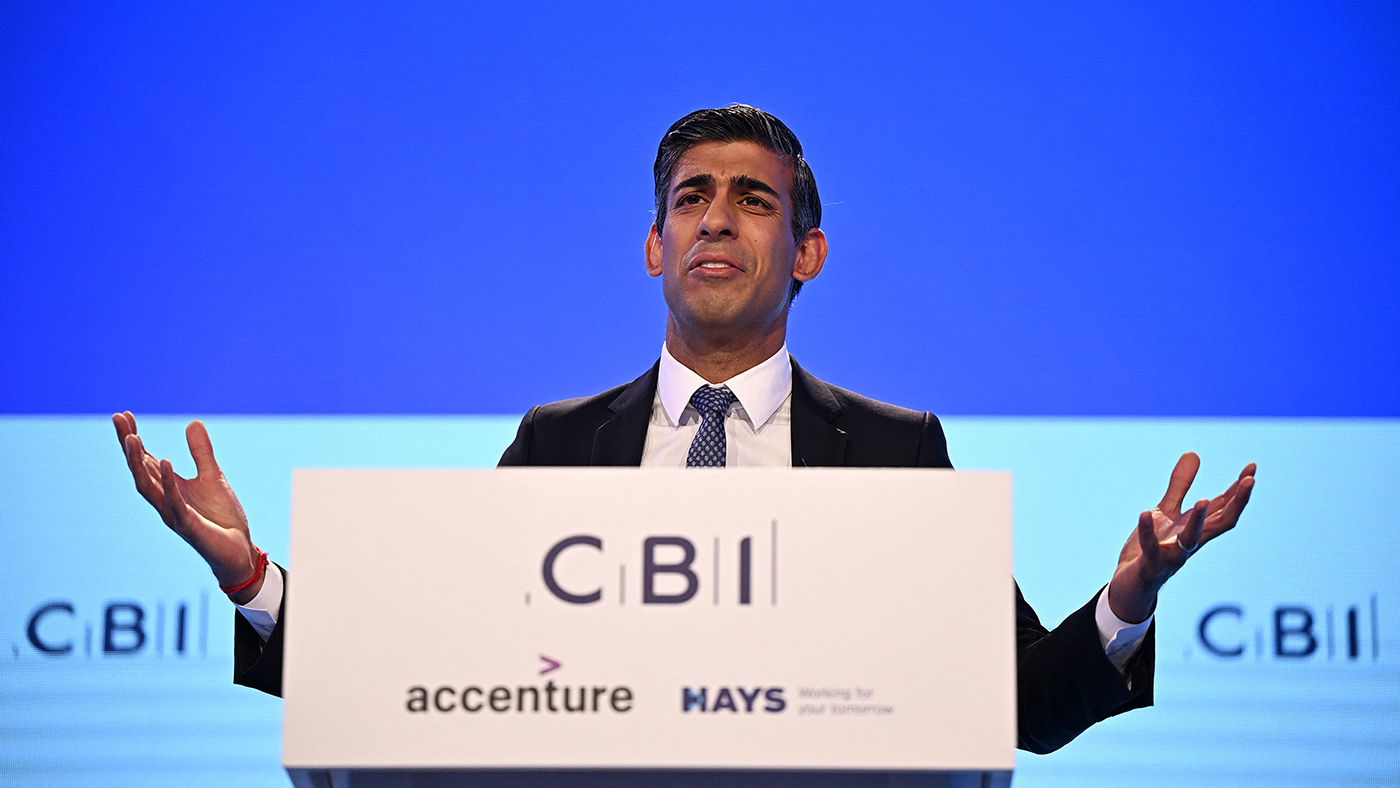Autumn Statement 2016: Real wages will not grow for a decade, says IFS
Think-tank warns of 'dreadful' times ahead, as Resolution Foundation say lower-income families will lose most
A free daily email with the biggest news stories of the day – and the best features from TheWeek.com
You are now subscribed
Your newsletter sign-up was successful
Autumn Statement 2016: What to expect from Chancellor Hammond
22 November
This week's Autumn Statement, the first to be delivered by Chancellor Philip Hammond, is one of the most important fiscal policy announcements in years. Here's everything we know so far.
The Week
Escape your echo chamber. Get the facts behind the news, plus analysis from multiple perspectives.

Sign up for The Week's Free Newsletters
From our morning news briefing to a weekly Good News Newsletter, get the best of The Week delivered directly to your inbox.
From our morning news briefing to a weekly Good News Newsletter, get the best of The Week delivered directly to your inbox.
When is the Autumn Statement?
This Wednesday, 23 November. Hammond will take to the despatch box after Prime Minister's Questions concludes at 12.30pm, with the formal documents made available online as soon as he's finished speaking.What's the big theme this time?
There's lots of context for this speech, including, of course, Brexit, and Prime Minister Theresa May's attempt to appeal to "Jams".
Why is the government concerned with preserves?
A free daily email with the biggest news stories of the day – and the best features from TheWeek.com
It isn't, it's just the latest acronym being used to refer to hard-pressed families. Jams are "just about managing" families struggling with high costs and stagnating wages.
The specifics are hard to pin down, says the BBC. Resolution Foundation think-tank claims it covers six million households comprising various demographics, ranging from single parents with an annual salary well below £20,000 to those where both parents work at the median wage, earning a combined £35,000.
The BBC says families earning as much as £50,000 "could be included, if they have several children to feed and clothe".
What policies will we see?
Hammond has given away few hints, but there are widespread rumours of a freeze in fuel duty, which The Times says would effectively scrap a planned 2p rise on a litre of petrol.
The Daily Telegraph says there could also be "policies to reduce the burden of childcare" and confirmation of plans to up the threshold for paying income tax to £12,500 a year – and changing the level at which the 40 per cent high rate kicks in to £50,000.
Elsewhere, there have been widespread predictions of a cut in air passenger duty to reduce the cost of foreign holidays that have been sent spiralling higher by the drop in the pound.
So it'll be a speech of giveaways?
Don't get carried away. The public finances are in no state for a big spending splurge, the Chancellor has said on a number of occasions.
Various studies estimate that updated forecasts will show tax revenues being £25bn or more lower by the end of this parliament and the budget still in deficit. Cumulative borrowing could be £100bn higher over the next five years.
These figures show the effect of the Brexit vote, which has hit business investment and caused growth projections to be revised lower. If the economy performs worse, tax revenues fall.
The Chancellor did get a surprise boost today, however, with official figures showing a record tax take in October and borrowing of £4.8bn for the month, well below the expected £6bn.
This means UK borrowing is lower for the April to October period than any year since 2008, but the borrowing target for the whole year remains "out of reach", says the Telegraph, and Hammond's fiscal "reset" is likely to ease targets for the years ahead.
Not the end of austerity then?
In short, no. In an article for the Sunday Telegraph this week, Hammond says once more that "we must continue to make progress towards living within our means… addressing the deficit, not leaving the burden of debt to future generations".
So while the government wants to "prioritise support to ordinary working families" and to invest to boost growth, it is likely to do so in a targeted, moderate fashion.
What growth policies will there be?
There were predictions of a huge infrastructure spending splurge of as much as £15bn. Now the Times is forecasting a more modest £5bn injection, of which £2bn will be a new range of tax breaks for science and research announced by the Prime Minister yesterday.
New infrastructure spending could include around £1.3bn on small-scale, mostly local road upgrades designed to improve productivity by making it easier for people to commute to and from work.
The Guardian also reports expectations that around £400m could be set aside to invest in spreading super-fast broadband across the country, with the private sector matching bolstering the total investment pot to £1bn.
"Hammond will say that the funding could increase to nearer £1.5bn over the life of the project, which runs until 2021, once private sector funds are included," adds the paper.
Are there likely to be corresponding cuts?
Probably less than there have been, but there is still talk of government departments having their budgets squeezed further – and there could be some tax money recouped through plans to curb "middle class salary perks", according to the Telegraph.
The government had already been consulting on so-called "salary sacrifice" schemes, which allow employers to offer staff the likes of gym membership or mobile phone contracts paid out of gross salary to save money in taxes.
However, these schemes also reduce tax revenues to the Exchequer and the government is worried they've become too common.
It won't touch pension or childcare schemes, but the Telegraph says everything else is fair game, so don't be surprised if your gym membership or even your company car suddenly loses their tax relief status and cost more out of your pay.
What happens next?
The Autumn Statement will effectively be the start of the government's effort to outline a "modern industrial strategy" and will be followed shortly by "a green paper on corporate governance, and a white paper on housing", says the Times.
May has also suggested her attempts to boost business investment could eventually see the UK's corporate taxes cut to the lowest in the G20 and below the 15 per cent promised by president-elect Donald Trump in the US.
-
 The ‘ravenous’ demand for Cornish minerals
The ‘ravenous’ demand for Cornish mineralsUnder the Radar Growing need for critical minerals to power tech has intensified ‘appetite’ for lithium, which could be a ‘huge boon’ for local economy
-
 Why are election experts taking Trump’s midterm threats seriously?
Why are election experts taking Trump’s midterm threats seriously?IN THE SPOTLIGHT As the president muses about polling place deployments and a centralized electoral system aimed at one-party control, lawmakers are taking this administration at its word
-
 ‘Restaurateurs have become millionaires’
‘Restaurateurs have become millionaires’Instant Opinion Opinion, comment and editorials of the day
-
 Five key takeaways from Jeremy Hunt's Autumn Statement
Five key takeaways from Jeremy Hunt's Autumn StatementThe Explainer Benefits rise with higher inflation figure, pension triple lock maintained and National Insurance cut
-
 Would tax cuts benefit the UK economy?
Would tax cuts benefit the UK economy?Today's Big Question More money in people's pockets may help the Tories politically, but could harm efforts to keep inflation falling
-
 Why UK companies are facing a dystopian, zero-growth future
Why UK companies are facing a dystopian, zero-growth futurefeature In prioritising stability, the Treasury risks ‘stifling enterprise and entrepreneurship’
-
 Labour shortages: the ‘most urgent problem’ facing the UK economy right now
Labour shortages: the ‘most urgent problem’ facing the UK economy right nowSpeed Read Britain is currently in the grip of an ‘employment crisis’
-
 Will the energy war hurt Europe more than Russia?
Will the energy war hurt Europe more than Russia?Speed Read European Commission proposes a total ban on Russian oil
-
 Will Elon Musk manage to take over Twitter?
Will Elon Musk manage to take over Twitter?Speed Read The world’s richest man has launched a hostile takeover bid worth $43bn
-
 Shoppers urged not to buy into dodgy Black Friday deals
Shoppers urged not to buy into dodgy Black Friday dealsSpeed Read Consumer watchdog says better prices can be had on most of the so-called bargain offers
-
 Ryanair: readying for departure from London
Ryanair: readying for departure from LondonSpeed Read Plans to delist Ryanair from the London Stock Exchange could spell ‘another blow’ to the ‘dwindling’ London market